We’re excited to welcome Leslie Payne as Community Vision’s first Vice President of Program Strategy. In this newly created role, Leslie will lead organization-wide strategic initiatives and ensure our programmatic efforts are aligned, responsive, and impactful. She will also provide leadership for our new Strategic Initiatives department, which will house our Real Estate Solutions consulting and community development work.
Leslie brings more than 20 years of experience advancing social change across sectors, including philanthropy and community organizing. Her work has spanned key areas such as housing affordability, equitable small business development, and the arts—always grounded in a deep commitment to equity and community-centered solutions.
We spoke with Leslie to learn more about what brought her to Community Vision, what shapes her approach to this work, and what excites her about this new role.
Q: Can you share a little bit about what’s shaped your journey that’s led to this moment?
So many things have shaped my journey, but one that stands out is my childhood. I grew up in a military family—my dad was in the Air Force—and we moved around a fair amount. Living on a military base gave me a strong sense of how important it is to feel rooted in community.
What stayed with me was seeing what it looks like when a society truly supports people. On base, families had access to housing, healthcare, education—because supporting them was essential to mission readiness. Outside of the military, we don’t operate that way. We don’t treat things like healthcare for kids as fundamental to families, businesses, or a functioning society. Growing up in that environment showed me what’s possible when systems are designed to support people—and that’s shaped my commitment to this work.
Q: When you first learned about Community Vision, what stood out to you?
I first learned about Community Vision while working at the James Irvine Foundation on a project exploring deeper investment in housing affordability. We consistently heard from grantees about the need to decommodify housing. Through those conversations, community land trusts emerged as a tangible way to take housing off the speculative market that aligned well with our goal of building community power.
The challenge was clear: the lending market isn’t built to support community ownership at scale. Community Vision stood out for engaging the complexities of community ownership with thoughtfulness, creativity, and as a collaborative and competent partner—qualities I really valued as a grantmaker.
As I transitioned out of philanthropy, I wanted to work in community development finance and support nonprofits that are often under-resourced in doing vital work. I wanted to be part of an organization that helps community organizations thrive on their own terms. Community Vision shares that value, and I’m so excited to contribute to and learn from this team.
Q: What drew you to this role in particular, and why now?
What drew me in was the opportunity to look at all the assets Community Vision holds—not just financial assets, but knowledge, relationships, and perspective—and think about how to expand and apply them in new ways. This role lets me bring that community-centered, power-building approach to new people and places in California, including the communities where I live and raise my family.
As for “why now,” I think we’re living in a moment of tremendous challenge and change. Over the next few years, there’s going to be a lot of rebuilding to do. We’re going to need our best thinking. And that rebuilding won’t be funded just through tax-deductible gifts to nonprofits. We need to bring more capital and creativity to the table. I want to be in a position to support that—across philanthropy and investment.
Q: What are you looking forward to in your role as Vice President of Program Strategy?
I’m looking forward to learning from and with the Community Vision team and the people we serve. One of the things that makes Community Vision really special is its approach to community listening. I’m excited to be part of that.
I’m also looking forward to rolling up my sleeves again on community ownership—not just through community land trusts, but thinking more broadly about models that support community ownership. There’s so much possibility, and I’m eager to explore it alongside our partners.
Q: What does “community” mean to you, and how does that shape how you do this work?
To me, community is a group of people with a shared experience—whether that’s based on location, identity, or something else—coming together to define and advance progress on their own terms.
At Community Vision, that idea is rooted in racial and economic justice. I believe we deserve a better economy—one that addresses the harm of past systems but also lifts up the amazing beauty, potential, and agency of the people who live here. Being part of that process—building community power and self-determination—is incredibly motivating to me.
Q: What’s bringing you joy or keeping you grounded as you begin this new chapter?
Honestly, my answer is the same for both: my six-year-old daughter. It sounds cliché, but thinking about the world I want her to grow up in shapes how I move through the world as an adult. I want to show her what it means to participate in community—to understand that what’s built can be changed, and what’s broken can be fixed. Especially when I think about how to answer her question, “What did you do at work today, Mommy?” I want to be able to tell her stories that reflect those possibilities.
Breaking things down into six-year-old-sized pieces helps me stay focused and not get overwhelmed. And working in this sector reminds me that people can and do make change. That keeps me grounded and gives me joy.
We’re excited for Leslie to join the Community Vision team—please join us in extending a warm welcome!
About Leslie Payne
Leslie brings more than two decades of experience advancing social change. Most recently, she served as an Initiative Director at the James Irvine Foundation, where she focused on access to quality jobs for people impacted by systemic inequities. During her tenure, she also focused on critical issues including housing affordability, equitable small business, civic engagement, and the arts.
Leslie’s professional background also includes work in financial services technology, community organizing, and philanthropic advising. She holds a bachelor’s degree from UC Berkeley and an MBA from Georgetown University. Based in Oakland, Leslie is driven by a deep commitment to creating inclusive, community-centered solutions that drive lasting impact.

